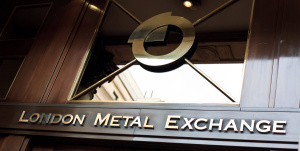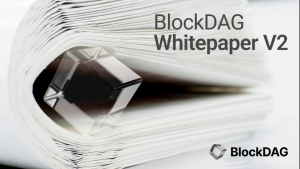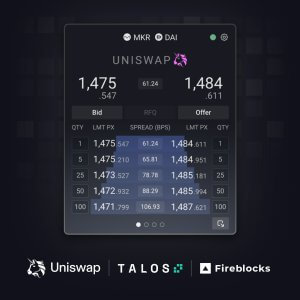The last ring of the LME bell?
The LME turned over 155 million lots or 3.50 billion tonnes of metals in 2020. Volume, which had a notional value of $11.60 trillion

One of the last bastions of open outcry trading in the world may have shut its trading floor doors for good. The London Metal Exchange or LME has announced plans to move away from the world-famous trading ring and its red leather sofa and instead turn to electronic trading.
The proposals were revealed in a consultation document published yesterday.
The paper sets out a vision for modernisation to create a metals market that’s fit for the future. As well as possibly closing the iconic ring the LME is exploring ways to enhance liquidity, improve its margining methodology and rules of conduct.
The business which is owned by HKEX, a Hong Kong-based exchange operator, turned over 155 million lots or 3.50 billion tonnes of metals in 2020 a total trading volume that had a notional value of $11.60 trillion, making the LME the epicentre of global metals trading.
The LME was established in 1877 but can trace its roots back farther in time to the opening of London’s Royal Exchange in 1571. The trading ring was originally marked by traders in the sawdust that covered the exchange floor, as a mechanism to draw attention to the fact that trading was about to commence in particular metal.
In the modern LME, the rings or auctions in individual metals are held in a strict rotation to establish the current price. These fast-paced and some times frantic sessions last for exactly 5-minutes and the rings run in three sessions held between 11.40 and 15.35 London time.
After the last ring of the day there are what is known as curb trading sessions and during market hours, and outside of the rings traders may deal with each other and their clients over the phone, or via the electronic LMEselect platform.
LME trading is notoriously jargon-heavy and seemingly impenetrable to an outsider with up to 200 tradable dates, per metal, available to traders.
Even the better known 3 months contracts are traded on a rolling basis so that 3-month copper traded today will have a different settlement and delivery date to a 3-month contract traded tomorrow.
A distinction that can create many additional trades as traders seek to match up or rollover exposure to a specific date.
Only a limited number of brokers can participate in the LME rings and there are just nine ring dealing member firms granted that privilege.
Speaking about the possible closure of the trading ring and floor LME Chief Executive Matthew Chamberlain said that: “The ring is a greatly treasured aspect of the LME’s rich 144-year history, and its closure is not a decision we or our market will take lightly. However, the LME has stood the test of time precisely because of its ability to adapt to the evolution of market dynamics and trading behaviour”
COVID-19 may have hastened the potential closure of the ring.
Mr Chamberlain added that “For the last 10 months, the ring had to be temporarily closed due to the global COVID-19 pandemic. We have been clear that we will not use the pandemic as a pretext to close the Ring, and we remain committed to this”
He also said that “However, it is fair to observe that this period of electronic pricing has served the market well, with consistently high volumes of activity in the pricing window, easily observable by all stakeholders, and more participants with direct access”
The LME will look to incentivise electronic trading by reducing fees for online trades whilst raising them for so-called interoffice trades, that are conducted over the phone.
The exchange is also considering introducing block trading rules and what it termed a liquidity provider program. Which most likely means providing rewards to market makers in LME products, traded within the electronic system.
It would undoubtedly be a shame to see the ring closed for good but traders are likely to ultimately benefit from the liberalisation and standardisation, that a move electronic trading would bring and that can only be a good thing in the longer-term.









